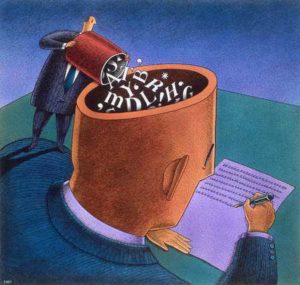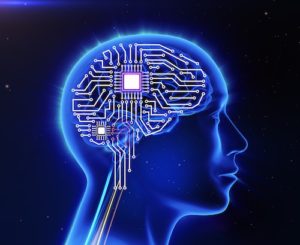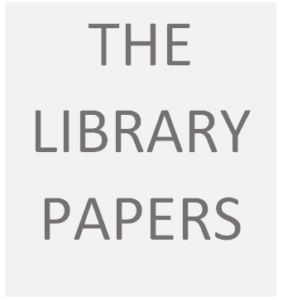What is childhood?
Journal Entry 1
The answer to this question depends on your view of human nature, and this is an old argument. If you’re a pessimist, you believe that humans in their natural state require being coerced into good behaviour (e.g. Thomas Hobbes’ Leviathan, 1651). If you’re an optimist, you think humans are born good, but end up being corrupted by their contact with others in society unless they are carefully nurtured (e.g. Alexander Pope’s 1734 ‘An Essay on Man’). And naturally your views on this will have implications for how you think children should be educated/initiated into society.
The Old View
 For some time in liberal-democratic societies, the more-liberal, optimistic view has prevailed: humans are basically good. With careful education this goodness can be preserved and nurtured. In his 1689 “Essay Concerning Human Understanding,” (http://www.gutenberg.org), John Locke famously described the infant mind as a blank slate. He meant well—he believed that humans are born free to become what they choose, and that it is education that makes the difference, rather than innate abilities. Jean-Jacques Rousseau held a similar belief—that human tendencies were learned, the result of nurture, not nature (The Social Contract, 1762). An over-simplified version of these ideas led to thinking that children should be protected and carefully introduced to knowledge/information/ideas at developmentally appropriate times.
For some time in liberal-democratic societies, the more-liberal, optimistic view has prevailed: humans are basically good. With careful education this goodness can be preserved and nurtured. In his 1689 “Essay Concerning Human Understanding,” (http://www.gutenberg.org), John Locke famously described the infant mind as a blank slate. He meant well—he believed that humans are born free to become what they choose, and that it is education that makes the difference, rather than innate abilities. Jean-Jacques Rousseau held a similar belief—that human tendencies were learned, the result of nurture, not nature (The Social Contract, 1762). An over-simplified version of these ideas led to thinking that children should be protected and carefully introduced to knowledge/information/ideas at developmentally appropriate times.
The New View

Now the tide is shifting in favour of nature. Western pedagogy has increasingly been founded on scientific research. Biologists, psychologists and linguists such as Paul Bloom, Alison Gopnik and Steven Pinker are showing us that we are not ‘blank slates’ waiting to be written on for better or worse, but that we come into the world with an operating system already in place, just waiting for the cultural software to be installed (computational theory of mind). This view offers the possibility that each child can be educated to develop his or her individual abilities, instead of to some standard of performance that all must meet.
My View
Myself, I don’t see much difference between the metaphors of the blank slate and the operating system—they both imply that the defining characteristic of human nature is our culture: the blank slate needs proper education to be activated; the operating system needs appropriate software; they both come from culture.
Maybe it’s time we stopped thinking about this in terms of nature versus nurture, as if who ‘we’ are is separate from the natural world, and started looking at culture as a natural phenomenon, part of the ongoing evolution of our species. Culture is the paradoxical part of our nature which allows us in some ways to transcend our nature via nurture.
 When it comes to educating our children, any theory of childhood which calls for educating them by regarding them as blanks, and then writing or installing whatever controlled information we think is desirable is doing an injustice and a disservice to children. We need to find ways to help children come to terms with our place in the natural world as human adults.
When it comes to educating our children, any theory of childhood which calls for educating them by regarding them as blanks, and then writing or installing whatever controlled information we think is desirable is doing an injustice and a disservice to children. We need to find ways to help children come to terms with our place in the natural world as human adults.
This is why Lev Vygotsky’s Zone of Proximal Development has become so influential. It positions knowledge as being constructed by individuals from their cultural as well as their natural environments. Teachers or other experts can help learners by ensuring that the material they are working with is challenging but not so far beyond them that they give up. And this is the basis on which I choose what to read to students—material that respects their drive to solve puzzles, to comprehend their circumstances and to grow their knowledge.
The Changing Views of Childhood
In this interview shown below with Diane Sawyer on 60 Minutes (2013), psychologist and cognitive scientist Paul Bloom explains research which shows that infants have an apparently innate moral sense of fairness.
Works Cited (Click here)
Bloom, Paul. Against Empathy: The Case for Rational Compassion. New York, NY: Ecco, an Imprint of HarperCollins, 2016. Print.
Dennett, Daniel Clement. Consciousness Explained. New York: Back Bay , Little, Brown, 2007. Print.
Gopnik, Alison, Patricia Kuhl, and Andrew Meltzoff. The Scientist in the Crib: What Early Learning Tells Us about the Mind. New York, NY: Perennial, 2004. Print.
Hobbes, Thomas, and Noel Malcolm. Leviathan. Oxford: Clarendon, 2012. Print.
“Lev Vygotsky.” Wikipedia. Wikimedia Foundation, 14 Feb. 2017. Web. 21 Feb. 2017.
Locke, John. An Essay concerning Humane Understanding. London: Printed for Awnsham and J. Churchill, 1694. Print.
Pinker, Steven. The Blank Slate: The Modern Denial of Human Nature. NY, NY: Penguin, 2016. Print.
Pope, Alexander. An Essay on Man. Dublin: Printed for J. Potts, at Swift’s Head, in Dame-Street, and J. Williams, at No. 5. in Skinner-Row, 1770. Print.
Rousseau, Jean-Jacques, Immanuel Kant, and Voltaire. The Social Contract. Chicago: Great Foundation, 1966. Print.


